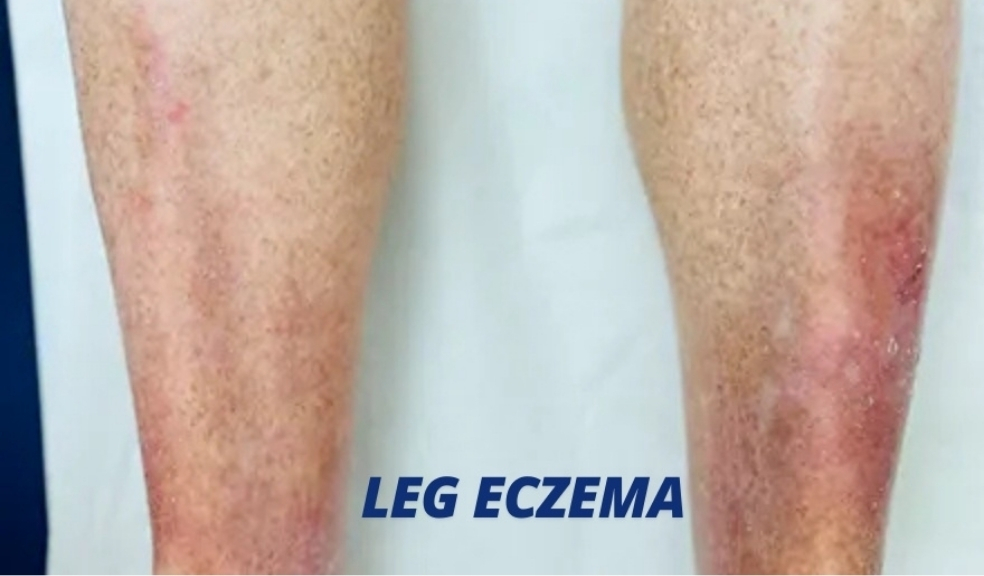Eczema, a condition that affects millions of people worldwide, is often surrounded by myths and misunderstandings. One of the most common questions people have about eczema. “Is eczema communicable?”. In other words, can you catch eczema from someone else simply by touching their skin? This article will separate fact from fiction, addressing your concerns and providing clarity on this important topic.
What Is Eczema?
Definition and Types of Eczema
Before diving into the specifics of whether eczema is communicable, it’s important to understand what eczema is. Eczema, also known as atopic dermatitis, is a chronic skin condition that causes inflammation, redness, itching, and dryness. There are different types of eczema, including atopic dermatitis, contact dermatitis, and seborrheic dermatitis, each with varying causes and symptoms.
Symptoms of Eczema
Symptoms of eczema can range from mild to severe, but common signs include:
- Dry, flaky skin
- Redness or patches of inflamed skin
- Intense itching
- Crusting or oozing in severe cases
How Does Eczema Affect the Skin?
Impact on the Skin’s Barrier
Eczema is characterized by a disrupted skin barrier, which means the skin has a harder time protecting itself from harmful substances, irritants, and allergens. This disruption leads to inflammation and redness. The skin’s inability to retain moisture also contributes to the dryness and itching that eczema sufferers experience.
Role of Inflammation
The condition is not caused by an infection but by a combination of genetic and environmental factors. In fact, eczema is often referred to as an “immune system disorder” because of its association with heightened sensitivity to environmental triggers.
The Question: Is Eczema Communicable?
Clarifying What “Communicable” Means
So, the burning question: Is eczema communicable? The simple answer is: No. Eczema is not contagious. You cannot catch eczema from someone else by touch, nor can you spread it to others if you have it.
Is Eczema Spreadable Through Direct Contact?
Eczema is not like a viral infection or bacterial condition that spreads through direct contact. Rather, it is a chronic condition with genetic and environmental triggers. Even though eczema can appear as visible rashes on the skin, they are a result of immune system overreaction, not something you can “catch.”
Understanding the Science Behind Eczema
Genetic Factors
Eczema is primarily caused by genetic factors, meaning people who have a family history of eczema or other allergic conditions are more likely to develop it. Additionally, environmental factors such as allergens, pollution, or even the climate can trigger flare-ups.
Environmental Triggers
There is no bacterial or viral pathogen causing eczema, which means it isn’t spread by germs or physical contact. The condition may worsen due to external irritants like detergents, harsh soaps, or fragrances, but this doesn’t mean the condition itself is spreadable.
What Causes Eczema to Flare Up?
Eczema flare-ups are often triggered by various factors, and they can vary from person to person. Some of the most common triggers include:
- Allergens like pollen, pet dander, and dust mites
- Skin irritants such as harsh soaps, detergents, or fragrances
- Weather changes, especially cold, dry air
- Stress or emotional factors
- Infections, although eczema itself is not contagious
By avoiding these triggers and following a proper skincare routine, people with eczema can help reduce the frequency and severity of flare-ups.
The Truth About Touching Someone with Eczema
Why Eczema Isn’t Contagious
Now, let’s address the myth head-on: Can you get eczema by touching someone who has it? The short answer is still no.
Explaining the Skin’s Reaction to Irritants
Eczema is not spreadable through touch, and the redness or rashes you see on someone’s skin are not infectious. However, it’s important to note that skin irritation or infection can occur if the eczema is scratched or becomes infected due to the compromised skin barrier. Even in these cases, the eczema itself isn’t contagious—what can spread is the bacterial or viral infection caused by scratching or breaking the skin.
The Role of Infection in Eczema
Can Eczema Lead to Skin Infections?
While eczema itself isn’t contagious, infections can occur in individuals with eczema if their skin is scratched excessively. These infections, such as staph (Staphylococcus aureus), can spread to others, but the infection, not the eczema, is the contagious part.
How Infections Can Spread, But Not the Eczema Itself
It’s important to seek treatment for infections related to eczema promptly, as they can worsen the condition and lead to other complications.
Debunking Common Myths about Eczema
- Is eczema spread through touching contaminated surfaces?
- No. The condition itself does not spread through surfaces, unlike colds or the flu. However, bacteria or other pathogens can spread through contaminated surfaces.
- Does eczema spread in public places?
- No. You can’t catch eczema by sitting next to someone on the bus or shaking hands. Eczema isn’t something that spreads in public spaces.
Treatment Options for Eczema
While eczema can’t be cured, there are several treatments available to manage the symptoms and reduce flare-ups. Some common treatments include:
- Topical creams and ointments: Hydrocortisone creams and other corticosteroids are commonly prescribed.
- Moisturizers: Regular use of moisturizers can help keep the skin hydrated.
- Fragrance-free creams: For sensitive skin, using a fragrance-free cream is crucial, as many scented products can trigger eczema flare-ups.
- Antihistamines to reduce itching.
If your eczema is severe, a doctor may prescribe immunosuppressant drugs to manage inflammation.
Managing Eczema Flare-Ups
Preventing flare-ups is key to managing eczema. Here are some tips to keep your eczema in check:
- Moisturize regularly to protect the skin’s barrier.
- Avoid known irritants like harsh soaps and fragrances.
- Wear soft, breathable fabrics to minimize skin irritation.
- Manage stress to reduce emotional flare-ups.
The Psychological Impact of Eczema
How Eczema Can Affect Confidence
Eczema isn’t just a physical condition—it can take a toll on your emotional well-being. The visible rashes and constant itching can make sufferers feel self-conscious, especially in social situations. Coping with eczema’s emotional impact is just as important as managing the physical symptoms.
Coping with the Emotional Toll
Support groups and therapy can help individuals deal with the psychological challenges of living with eczema.
Living with Eczema: Tips and Advice
If you live with eczema, there are numerous resources available to help you navigate life with the condition. Consulting with a dermatologist regularly can provide tailored advice and treatments to manage flare-ups. Additionally, support groups, both online and offline, can offer comfort and advice from others going through similar experiences.
Conclusion
To recap, eczema is not communicable through touch. It is a genetic condition that is triggered by environmental factors and affects the skin’s ability to protect itself. Though it can lead to infections, the eczema itself is not something that can be passed from person to person.
Understanding eczema and debunking myths about its communicability helps foster a more empathetic approach toward those who suffer from it.
FAQs
Can eczema be spread from one person to another?
No, eczema is not contagious and cannot be spread through touch or contact.
What triggers eczema flare-ups?
Common triggers include allergens, irritants like soaps and fragrances, stress, and extreme weather conditions.
Can I use scented products if I have eczema?
It’s recommended to avoid scented products, as fragrances can irritate sensitive skin. Opt for fragrance-free creams and lotions instead.
What is the best treatment for eczema?
Treatments vary depending on severity but can include topical corticosteroids, moisturizers, and fragrance-free creams. For severe cases, a doctor may prescribe oral medications.
Is eczema related to allergies?
Yes, eczema often occurs in people with a family history of allergies, and environmental allergens can trigger flare-ups.
Click here to read more articles.












Leave a Reply